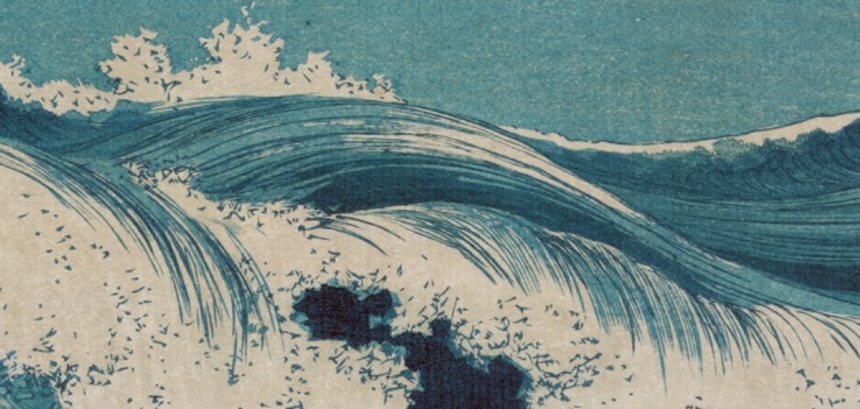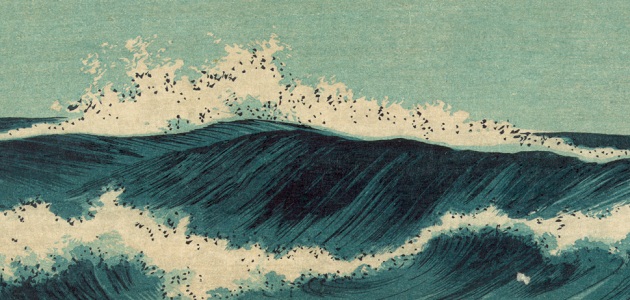Books To Be Scene: Chris Adrian's THE CHILDREN'S HOSPITAL

"Paul?"Who's this latest rambling missive aimed at, then?
Emma listened for her husband - sometimes he fell very silent and she could barely hear him breathing - and she thought the line was dead until a lady's voice spoke out of the phone.
"He is gone, my love. Gone forever, not to be seen again in this world. He is already drowned, but not you. You I will protect and preserve and love for all your allotted time."
"Who is this?" Emma demanded. "Is this the fucking operator?"
She only got silence for an answer, and then she got the terrible sensation that comes of being thrust up so impossibly high, so impossibly fast. Not even an angel wielding the sheltering grace of God could cushion her fully.
Let's see. There are two kinds of people; those who tend to think faith is the answer to everything, and those who feel it's got to be reason. Or, to be more accurate, those who hear the premise of The Children's Hospital and think "Hmmm, that sounds pretty cool" versus those who respond with a blank stare, or if you're lucky a gentle "And how does that work, exactly?". (Like my skeptical father, for one.) Chris Adrian's sophomore novel isn't exactly unfilmable as such, but as the good Lord is my witness if anyone did bring it to the screen I swear there'd be angry cinemagoers queueing round the block declaring it unwatchable.
It's a mammoth literary screed, the kind of thing that makes even your Kindle pause for breath, a dense and thorny treatise on how humanity reacts when it's confronted with something it can't rationalise away. It's frequently a slog, stuffed full of lurid armchair philosophising that borders on free association, and the ending's so out there it's like the finale of 2001 after an acre of weed and a gallon drum of purple drank. But - there's a but - it's a bold, fearless and often stunningly cinematic book, one that takes an off-the-wall idea and ploughs through it driven by a spirit of adventure like very few movies you've ever seen, let alone books you've read.
Yeah, I was starting to wonder what made it worth reading.
How's this? The Children's Hospital opens on the apocalypse, but an end of the world that's, well, at least a little different. No zombies, no cleansing fire from heaven; storm clouds blanket the earth instead, and a torrential downpour covers the planet in seven miles of water. Everyone's dead, just like that, except for the staff and patients at the titular medical institution. The hospital is borne upwards on the flood, and a voice in the walls announces she's the preserving angel, sworn to protect the chosen ones inside the building as it sails towards some unknown destination across what seems to be an endless expanse of water.
First order of business is to get the patients under control - premature babies all the way up to critically ill teenagers, many of them with parents in tow. Once that's done, the staff have to decide how to continue on their bizarre ocean cruise. Whatever the angel might be she's keeping them afloat, and the hospital's now utterly transformed, kitted out with fantastic technology catering to the residents' every whim. But it's half Star Trek, half Lord of the Flies, and when harried med student Jemma Claflin finds she's been gifted with what seem to be supernatural healing powers she's caught in a battle between the staff who want to keep the rules and regulations going and those happy to trust it'll all work out.
But it's dense? A slog? Like being whacked out on depressants?
It can be a wordy book, yes. Adrian was - still is - a successful physican (in paediatrics, natch), and doesn't seem to have much love for bureaucracy. The Children's Hospital is more Animal Farm, to be honest, run by a parade of headstrong, puffed-up senior staff and power-hungry juniors all of whom eat medical students whole and spit out the bones. The man plainly knows whereof he speaks, but this frequently leads to reams upon reams of increasingly obscure medical terminology, enough awful diseases to fill a whole set of dictionaries, and when Adrian starts mixing this up with theological discussion and questions about the Meaning of Life it can feel like those seven miles of water just came crashing down on you.

Thankfully he knows how to paint a picture as well as speechify. While the novel doesn't quite hit the ground running, the sequence where the storm rolls in puts virtually anything Roland Emmerich's ever done to shame. Not least because you, the reader, know what's coming - the anticipation builds, and builds, until you realise oh, Christ, this is it, it's really happening, and the doors slam shut and darkness falls outside and the cast feel this sensation of rocketing upwards and despite everything else that's happening at that point the whole thing scared me more deeply than most horror novels I've ever read.
And yet you claim it's sometimes kind of a snooze?
Well, nothing else manages quite that visceral punch, but there are frequent moments where even the most convoluted prose manages a kind of insane poetry that practically begs to be visualised. It becomes obvious Jemma and her beau Rob have a part to play in whatever awaits the hospital, and the passage where she finally learns how to use the power she's been given is a whirling, pyrotechnic fever-dream that spans what seems like every room in the building. But whatever answers we've got coming also involve Jemma's brother, a very troubled young man, now long dead, and the lengthy flashbacks to her childhood play out like nightmarish suburban farce plus bone-dry American Gothic.
And the big words do inform the exciting bits. Adrian does arguably push the envelope a little too far, musing on the destruction of innocence later on with a new character who veers dangerously towards the smirkingly obvious. But when he explores the same themes with Jemma and her brother, when the characters wonder out loud about whether they're doing the right thing, or the angel and her cohort marvel at the human condition, there's a quiet power underneath the florid monologuing that stays with you. This is a book where the author can seem like a blowhard, yet you come to realise he's anything but; where the real pain comes not from screaming histrionics but the realisation that maybe they can't change anything.
It does sound pretty weird, I'll give you that.
Trust me - words can't encompass anything more than a fraction of how bizarre The Children's Hospital really is in its totality. I was trying to sum it up on Twitter and the best I could do was a head-on collision between Terry Gilliam, Michael Gondry and Todd Solondz; it's a gloriously playful vision, the work of a master fantasist, but a dark and troubled one too. There's a tenderness to the flashback sequences, but also a savagery on display, humanity as eternal optimists but also forever crippled, broken children. Adrian does drag on - his weakness for moments of "I'm a doctor, me" - plagues his other books - but he also comes across as patient, warm and almost heartbreakingly sympathetic.
It'd never get filmed, of course, not unless there's some director out there with an arthouse sensibility, a knack for seriously high-end CG and the ability to bring a movie in way, way under budget. You'd need someone to milk this for every opportunity for visual trickery they could get (a bit like the way I imagined Anna Richards' Little Gods) otherwise you'd turn off a sizeable portion of what would be a relatively small audience to begin with. But it could definitely be done. Mature, genuinely grown-up cinema still neglects the possibilities in dazzling the viewer, showing them something they've never seen before and inviting them to think hard about it. Anyone in the industry looking to give it a shot should consider The Children's Hospital another great place to start.
The Children's Hospital by Chris Adrian, published by Granta in the UK and McSweeney's in the US, is available in physical and ebook formats now.
Images are public domain artworks from Clker.com, as I couldn't find any version of the covers large enough.

Do you feel this content is inappropriate or infringes upon your rights? Click here to report it, or see our DMCA policy.






